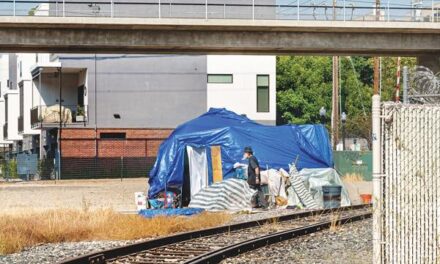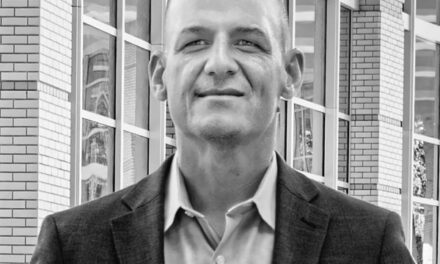It sounds virtuous. Take 40 percent of the cash Sacramento collects on cannabis sales taxes and give the money to youth programs. Activities for kids would receive about $10 million a year.
But that’s not how Measure L on the city’s November ballot really works. Millions of tax dollars won’t go straight to support young people.
The cash will be laundered through a middleman: the youth services industry.
Yes, greedy adults stand at the heart of the comically titled “Children and Youth Health and Safety Act.” The proposal establishes a permanent transfer of city money to a special interest group.
It’s a cash geyser for the youth services industry.

The “Children and Youth” plan wasn’t written with real children in mind. The “Purpose” paragraph, a mere 57 words, makes vague references to services for homeless youth, foster children and kids with mental health and drug problems. No details are offered. “Purpose” is a dream.
The dollars are real. The plan requires City Manager Howard Chan to cut around $10 million annually from the general fund and give the money to youth organizations.
Trouble is, public safety and parks are financed by the general fund. This means fire, police and park maintenance will suffer cuts as Chan scrounges to pay for afterschool programs. Remember that while calling 911.
When youth industry insiders wrote the “Children and Youth” measure, they anticipated critics might complain about the lack of accountability. Did they include performance goals?
No. They envision a commission formulating goals. Nothing beats a commission when it comes to erasing accountability.
Better yet, they plan to rig the commission, filling it with friends and associates.
The City Council gets to choose the commissioners. But the council must select people connected with the youth services industry. Only foxes guard this henhouse.
Contrast the proposed “Children and Youth” commission with the Sacramento Community Police Commission, formed by the city in 2015.
While prospective youth fund commissioners must be industry insiders, the police commission won’t seat anyone with a law enforcement background. Knowledge is bad when it comes to public safety.
“We will have significant performance benchmarks,” says City Councilman Jay Schenirer, who helped shepherd Measure L onto the ballot. Jay retires from council in December, possibly to run another—yes!—youth services organization.
Measure L promoters understand the youth services industry draws sketchy characters and fast-buck hustlers. The measure includes language to discourage shady operators from stealing too much money under the subterfuge of “administrative” expenses.
The ballot measure recognizes the irresistible tendency among some youth service leaders to commingle public and private dollars for personal use, fancy meals, trips and hotel rooms.
It sets up a sliding scale where youth program executives can grab only 20 percent, then 15 percent and finally 10 percent of their city windfall for “administrative” purposes.
Another problem with Measure L is its permanence. As a charter measure, the proposal will be tattooed in red ink on the city’s backside forever.
The only way to erase a charter amendment is to return to the ballot box and ask voters to rescind their mistake. In a word: unlikely.
Sacramento voters already rejected two “Children and Youth” propositions. The stench that smothered Measure Y in 2016 and Measure G in 2020 clings to Measure L.
In previous years, residents were worried about accountability and pillaging the general fund. Asking a third time feels like harassment.
A final cautionary reminder to voters is the city’s stellar performance on homelessness.
Since 2016, when Mayor Darrell Steinberg promised to end homeless in three years, hundreds of millions of dollars have disappeared down the homeless services drain. Meanwhile, the unhoused population swelled from 2,700 to nearly 10,000.
Other than losing his strong mayor bid, Steinberg suffered no political pain for his incompetence. He supports the $10 million “Children and Youth” giveaway.
The true beneficiaries of the “Children and Youth” act are not kids but adults who run youth service companies. Measure L reduces their obligation to raise money and prove themselves. Picture an eternal cascade of dollars, few questions asked.
R.E. Graswich can be reached at regraswich@icloud.com. Follow us on Facebook, Twitter and Instagram: @insidesacramento.
CORRECTION
A column in our September edition by City Councilman Jeff Harris headlined “Still A Bad Idea” incorrectly stated City Councilman Jay Schenirer owned a nonprofit that provides youth services. Schenirer has never owned a nonprofit.















